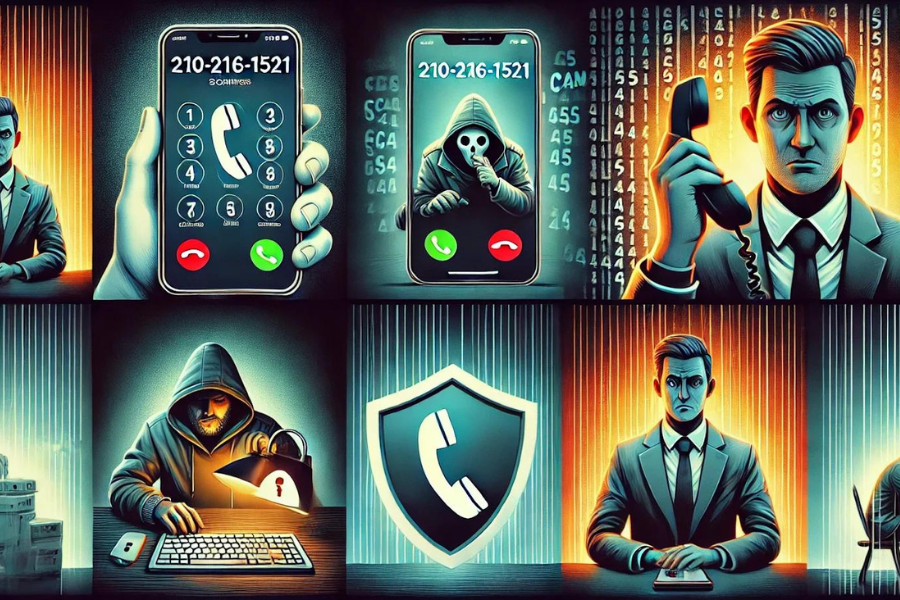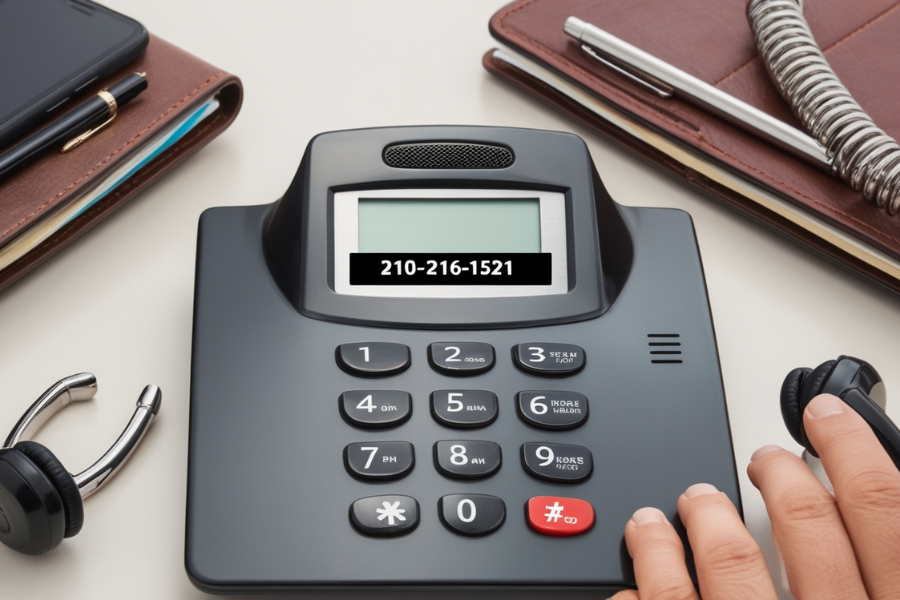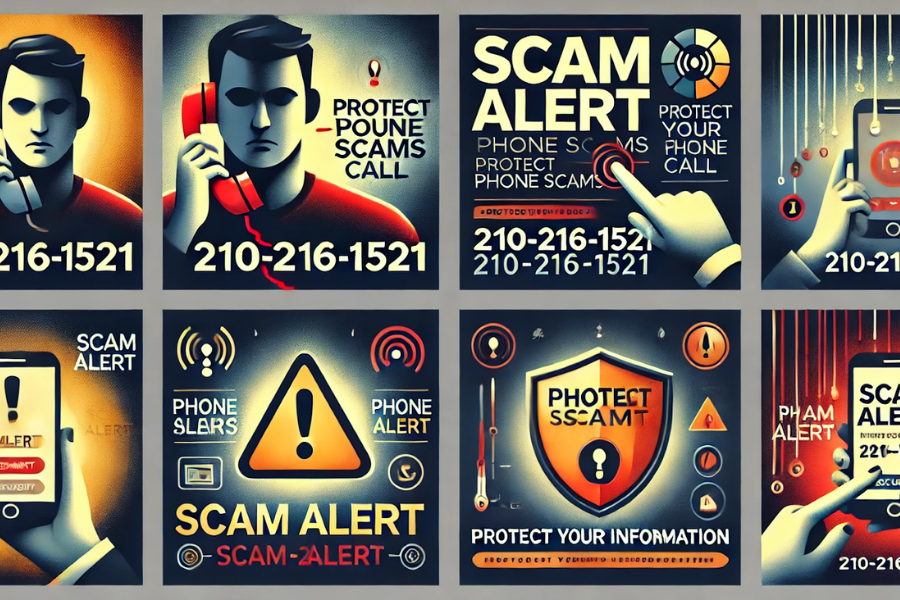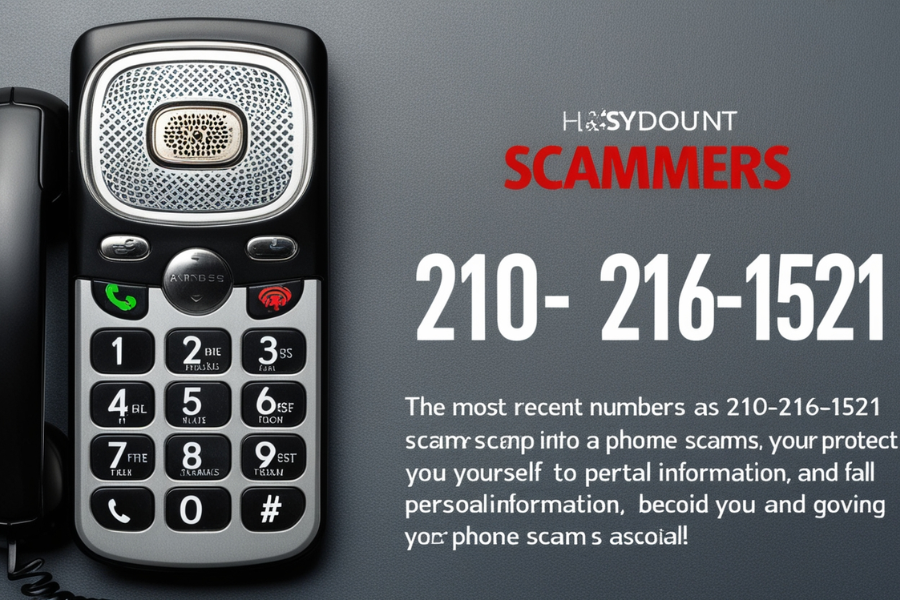The Growing Threat of Phone Scams: Understanding the 210-216-1521 Scam and How to Protect Yourself
Introduction
In recent years, the alarming rise in phone scams has become a pressing concern for individuals across the globe. Scammers are increasingly utilizing sophisticated tactics to deceive unsuspecting victims, aiming to steal personal information and money. Among the various deceptive practices, one notorious number that has surfaced is 210-216-1521. This article will delve into the specifics of the 210-216-1521 scam, its operational tactics, and how you can protect yourself from becoming a victim in this treacherous landscape of phone fraud. Armed with the right knowledge and proactive measures, you can safeguard your personal information and evade becoming yet another statistic in the world of phone scams.
A Deep Dive into the 210-216-1521 Scam
The 210-216-1521 scam represents just one of many phone fraud schemes reported throughout the United States. Scammers behind this number frequently contact individuals, often masquerading as representatives from reputable companies, government agencies, or even charitable organizations. The primary objective is to manipulate the recipient into divulging sensitive personal information, including Social Security numbers, credit card details, or banking information. The perpetrators behind the 210-216-1521 calls are often skilled at creating a facade of legitimacy, employing advanced techniques to establish trust with their victims.
How the 210-216-1521 Scam Operates
Typically, the 210-216-1521 scam initiates with a phone call from the number in question. The caller may assert they are affiliated with a well-known organization, such as the IRS, a utility provider, or a bank. They may concoct a narrative that involves an urgent issue requiring immediate attention—ranging from problems related to taxes and overdue bills to security breaches affecting your bank account. The aim is to pressure the recipient into providing personal details or making payments to resolve the purported issue.
The scammers employing the 210-216-1521 number frequently utilize scare tactics to coerce their victims into compliance. They might threaten legal repercussions, fines, or even arrest if their demands are not met. This strategy instills a sense of urgency and panic, compelling individuals to act hastily without thoroughly analyzing the situation. Unfortunately, many people fall prey to these scams because the callers often sound convincing, and the threats appear credible.
Consequences of Falling Victim to the 210-216-1521 Scam
The repercussions of succumbing to the 210-216-1521 scam can be severe. If you divulge your personal information to these scammers, they can exploit it for identity theft, drain your bank accounts, or make unauthorized transactions using your credit cards. Some victims have lost substantial amounts of money before realizing they’ve been scammed. Furthermore, the aftermath of such scams can be a long and grueling journey involving legal action, credit monitoring, and various steps to safeguard one’s identity and finances.
Why the 210-216-1521 Scam is Particularly Effective
The 210-216-1521 scam proves particularly effective due to the myriad tactics employed by the scammers. They often utilize spoofing technology to make the call appear as though it originates from a legitimate source. This technology allows them to display a local area code or the name of a trusted organization on your caller ID, increasing the likelihood that you will answer the call. Additionally, these scammers excel at manipulating their victims through emotional appeals, whether it’s invoking fear, urgency, or even compassion, depending on the nature of the scam.
Another critical factor contributing to the effectiveness of the 210-216-1521 scam is the lack of awareness among the public regarding the warning signs of phone scams. Scammers exploit this unawareness to mislead their victims into sharing information or funds. They often target vulnerable populations, including the elderly, who may be less familiar with modern communication technologies and more inclined to trust a caller claiming to represent a reputable organization.
Strategies for Protecting Yourself Against the 210-216-1521 Scam
To defend yourself against the 210-216-1521 scam, you must cultivate awareness, skepticism, and implement proactive measures. Recognizing the warning signs of a phone scam is the first step. Be cautious of any call that makes urgent demands for personal information or payments, especially if the caller threatens legal action or other consequences. Remember, legitimate organizations, such as government agencies or banks, will never request sensitive information over the phone or demand immediate payments.
One effective precaution is to register your phone number with the National Do Not Call Registry, which can help minimize the number of unsolicited calls you receive. However, keep in mind that this won’t deter scammers, as they often operate outside the bounds of the law. For additional protection, consider utilizing a call-blocking app or service designed to identify and block known scam numbers, including 210-216-1521.
Reporting the 210-216-1521 Scam
If you receive a call from 210-216-1521 and suspect it is a scam, it is crucial to report it to the appropriate authorities. In the United States, you can file a report with the Federal Trade Commission (FTC) through their website or by contacting their consumer hotline. The FTC tracks scam reports and takes action to shut down these operations, thereby helping protect others from falling victim to similar schemes.
In addition to notifying the FTC, it’s advisable to report the call to your phone carrier. Many carriers offer tools and services designed to protect customers from phone scams. By reporting the number, you assist them in taking measures to block the scammer and prevent further calls to other customers.
Steps to Take If You’ve Fallen Victim to the 210-216-1521 Scam
If you find yourself a victim of the 210-216-1521 scam, immediate action is essential to mitigate the damage. Start by contacting your bank, credit card company, or any financial institution that may be impacted. They can help you monitor your accounts for unauthorized transactions and take protective measures to safeguard your funds.
Next, consider placing a fraud alert on your credit report. This notification will prompt creditors to exercise additional verification steps before opening new accounts in your name. You can establish a fraud alert by contacting one of the three major credit bureaus: Equifax, Experian, or TransUnion. Regularly reviewing your credit report for any suspicious activity is also wise.
If you suspect that your Social Security number has been compromised, reach out to the Social Security Administration (SSA) to report the issue and obtain guidance on how to protect your identity. In certain situations, the SSA may issue a new Social Security number if fraud is confirmed.
Finally, consider filing a police report, particularly if you have experienced financial losses due to the scam. A police report can serve as essential documentation should you need to dispute fraudulent charges or pursue legal action against the scammers.
Maintaining Vigilance Against Future Scams
The 210-216-1521 scam is merely one of countless phone scams plaguing society today. To guard against future scams, remain vigilant and well-informed. Stay educated about the latest tactics scammers employ, and share this knowledge with friends and family members, particularly those who may be more susceptible to phone scams.
It’s important to recognize that scammers are continually evolving their methods, necessitating a cautious approach whenever you receive unsolicited phone calls. By staying informed and taking proactive measures, you can fortify your defenses and protect both yourself and your loved ones from the threats posed by phone scams like the 210-216-1521 scam.
Conclusion
The 210-216-1521 scam epitomizes a dangerous and deceptive strategy employed by scammers to pilfer personal information and funds from unsuspecting individuals. By understanding the mechanics of this scam and taking appropriate steps to safeguard yourself, you can avoid becoming a victim of these malicious schemes. Always exercise caution when fielding unsolicited phone calls, and refrain from divulging personal information or making payments without first verifying the legitimacy of the caller. By remaining vigilant and informed, you can protect your personal information and shield yourself from the increasing threat posed by phone scams.
Keep up-to-date with breaking news and updates on BuzzFeedNow.com






